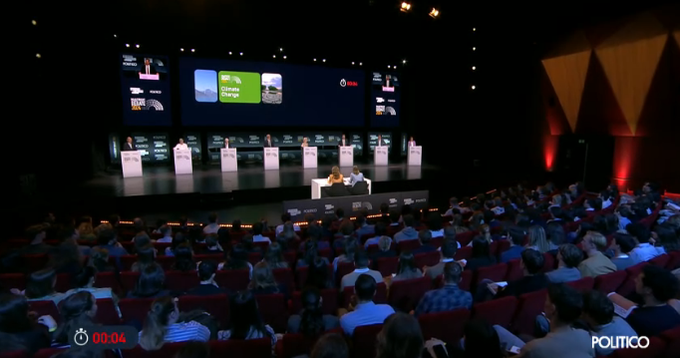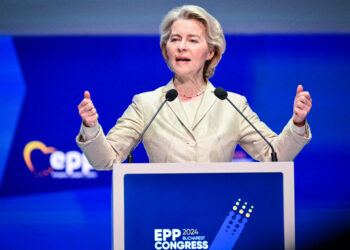Brussels – Ursula von der Leyen does not close the doors to European conservatives, leaving open the door to a possible collaboration in the next legislature. The outgoing European Commission President seeking another term officially kicked off her election campaign, inflaming Monday night’s debate in Maastricht with a possible EPP-ECR convergence. It was the first debate among candidates running for the leadership of the EU executive.
“A lot depends on the composition of the next Parliament and who will be in it,” von der Leyen said in response to the question about possible collaboration between her, her party, and European conservatives. Those who had expected a clear stance under the banner of an openly pro-European and less winking at the sovereignists were certainly disappointed. So much so that the Socialist candidate Nicolas Schmit attacked, “Please clarify: working with the far right would go against what this Commission has worked for.”
The current Labor and Social Affairs commissioner cites the Lgbtqi community because it is representative of the distinction between a European Union that promotes their rights and conservative political forces that instead tend to reduce and deny their rights. The possible relationship between the EPP and the ECR becomes a cause of friction in the race between the Populars and Socialists, who are nevertheless very close in their vision of other challenges. There was no response last night from the ECR, which does not have a candidate for president of the Commission and, therefore, was not present at the debate.
Fighting illegal immigration and defending the Green Deal is common to virtually all the candidates who appeared on stage. Even if the Greens, with Bas Eickout, accuse von der Leyen of “watering down” the Green Deal by “withdrawing pesticide cut proposal” and accepting all the demands of farmers, supported by the far right.
According to Von der Leyen, who is eager for a second term, closing the door to the ECR is currently not viable. Not least because five years ago, her investiture in the European Parliament came precisely from part of the conservative group, particularly the Pis Poles. It also sends a message when she says it all depends on who is part of the group: an emphasis that seems to indicate a closure toward Viktor Orban, the Hungarian prime minister, who is flirting with conservatives. If anything, von der Leyen is quietly dictating the terms of an alliance between the populars and the conservatives.
The candidate nominated by Renew Europe, Marie-Agnes Strack-Zimmermann, publicly explains that there is no willingness to wink or make concessions to those who question the EU. “We have to be strong with countries like Hungary because the local problems of one country affect the whole Union.” An ECR with Orban, therefore, would mean the isolation of the EPP in Parliament. The Popular Party’s choices will depend on the choices of others.
English version by the Translation Service of Withub







